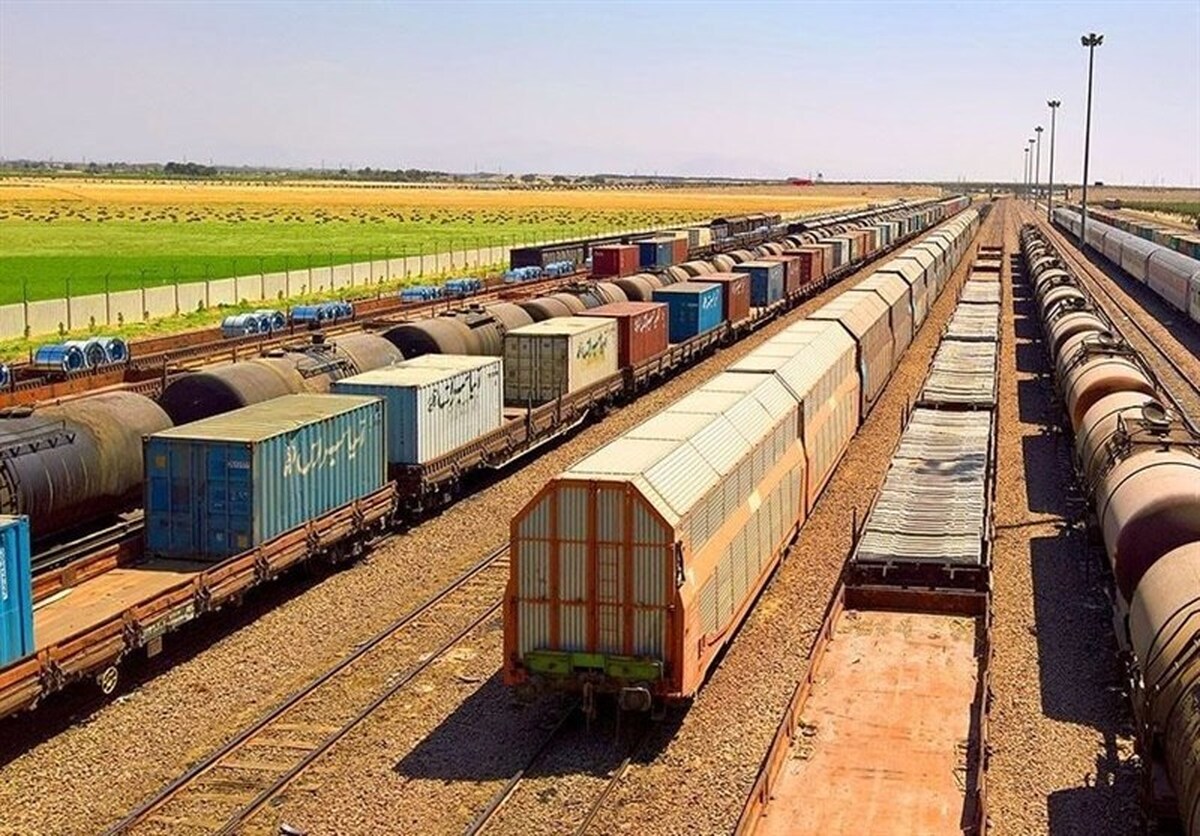
Transport Costs Reduced to a Third Post-Sanctions
EghtesadOnline: Iran’s logistics sector has thrived since the nuclear deal.
Transportation costs have reduced to a third, following the lifting of sanctions imposed on Iran’s economy for years over its nuclear energy program, the head of Transportation and Logistics Commission at Iran Chamber of Commerce, Industries, Mines and Agriculture, Omid Malek, said.
Sanctions were lifted on January 16 last year, when Iran and world powers put into effect a deal they clinched in July 2015. The pact limited the scope of Iran’s nuclear program in exchange for the removal of economic restrictions.
“Removal of sanctions on Iran’s transportation sector was wisely negotiated as a top priority in negotiations with the world powers,” he was quoted as saying by the government’s official news portal Dolat.ir.
Following the lifting of sanctions, Iran has witnessed “important openings” in the field of transportation, “which can help oil the wheels of the economy”, according to Malek.
According to Financial Tribune, sanctions forced major global shipping companies to avoid calls at Iranian ports, while making it difficult for Iranian vessels to dock and unload cargo at international destinations. Under the sanctions, traders had to ship goods to alternative hubs, like Dubai, where goods were reexported to and from Iran.
> LPI Rebounds
“Following the lifting of sanctions, Iran’s Logistics Performance Index improved significantly,” says Malek, who is also the deputy head of Shipping Association of Iran.
LPI is an interactive benchmarking tool created by the World Bank to help countries identify the challenges and opportunities they face in undertaking trade logistics and what they can do to improve their performance.
The index is based on a worldwide survey of operators on the ground (global freight forwarders and express carriers), providing feedback on the logistics “friendliness” of the countries in which they operate and those with which they trade.
It measures performance along the logistics supply chain within a country and offers two different perspectives: international and domestic. International LPI ranking provides qualitative evaluations of a country in six areas by its trading partners—logistics professionals working outside the country.
Iran ranked 78th in the World Bank’s LPI ranking in 2007, but dropped to 112 in 2012, as a result of tightening sanctions. Its ranking has been improving ever since.
The country stood at 96th place in 2016 among 160 states. The World Bank revises the LPI ranking biennially.
> Normalization of Shipping Ties
“International shipping companies have started making calls at Iranian ports, which has raised confidence and peace of mind among our traders,” Malek said.
More than a dozen international shipping lines have returned to Iranian ports following the implementation of the Joint Comprehensive Plan of Action (the formal name of the nuclear deal).
Mediterranean Shipping Company, the world’s second-largest shipping line in terms of container vessel capacity, and Evergreen Line are among the top shipping lines that have resumed interactions with Iranian ports.
France’s CMA CGM, the world’s third largest container shipping group, also called at Shahid Rajaei, Iran’s biggest container port at the mouth of the Strait of Hormuz, early August. The company teamed up with Islamic Republic of Iran Shipping Lines to share vessel capacity and jointly operate routes and marine container terminals.
Most recently, Maersk Line expanded its footprint in Iran by adding a second port of call less than three months after it resumed services to the country following the lifting of sanctions. The Danish carrier, which suspended services in 2012, has added the port of Bushehr to its Iran coverage. Its service was relaunched with calls to Bandar Abbas in October.
Iran’s shipping industry is also thriving after the nuclear pact. In July, chairman of the Shipping Association of Iran said all restrictions on Iranian shipping companies had been lifted.
“With sanctions gone, Iranian vessels are now allowed to freely sail around the world. Likewise, foreign vessels are permitted to enter Iran’s territorial waters,” says Masoud Polmeh, chairman of Shipping Association of Iran.
IRISL’s container carrier Azargoun called at Belgium’s Antwerp Port in March, for the first time in almost half a decade after calling at the Port of Hamburg. The Iranian ship moored at Deurganck dock after departure from Germany’s Hamburg.
The last time IRISL made port calls to Europe was in 2010 through its subsidiary Hafiz Darya Shipping Company, or HDS Lines.
Belgium’s Antwerp Port Authority signed a memorandum of understanding with Shahid Rajaei Port Authority, located in Iran’s southern Hormozgan Province in July.
With almost 90% of Iran’s foreign trade taking place through its territorial waters, Iran’s ports (of which there are 11 primary ones) are especially important. IRISL is the primary domestic player in this area.
Following the adoption of JCPOA, IRISL has announced its intention to become one of the world’s top 10 shipping lines by 2020.


